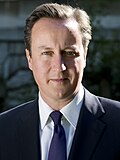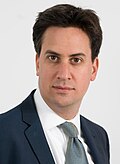Background
Elections would have been due in Northern Ireland given the previous elections to all 26 local councils in 2011, but these councils have since been scrapped and replaced by 11 super-councils, which had their inaugural elections in 2014.
All registered electors (British, Irish, Commonwealth and European Union citizens) who will be aged 18 or over on the day of the election were entitled to vote in the local elections. Those who will be temporarily away from their ordinary address (for example, away working, on holiday, in student accommodation or in hospital) are also entitled to vote in the local elections, [4] although those who have moved abroad and registered as overseas electors cannot vote in the local elections. Those who are registered to vote at more than one address (such as a university student who has a term-time address and lives at home during holidays) are entitled to vote in the local elections at either address, as long as they are not in the same local government area. [5] [6]
Analysis
In 2015, direct elections were held in 279 of the 293 local districts in England: 36 metropolitan boroughs, 194 of the second-tier districts, and 49 of the unitary authorities. [10] There were no local elections in London, Scotland, or Wales. [10] [11]
There were also six elections for directly elected mayors, as well as elections to many parish councils and town councils, and a few local referendums. [10]
As was the case in the simultaneously-held general election, the Conservative Party was considered the clear winners of the local elections, winning overall control of more than thirty local councils, mostly from councils that before the election had no overall control (i.e., no majority held by any one party). [10] The Conservatives retained control of the Solihull and Trafford councils, the only two metropolitan boroughs that it held before the election, slightly increasing its majority on both. [10] Among the unitary councils, the Conservatives won control of Bath and North East Somerset for the first time. [10]
As was the case in the general election, the Labour Party and Liberal Democrats performed poorly. [10] Labour lost control of the Walsall metropolitan borough and the Plymouth and Stoke-on-Trent unitary authorities, both to no overall control. [10]
The Green Party of England and Wales lost their status as the largest party on Brighton and Hove City Council to Labour. [10] [12]
The UK Independence Party won control of the Thanet District Council, going from two to 33 seats on that council. This marked the first time that UKIP won control of a local council. [10] [13] [14]
According to an analysis by Colin Rallings and Michael Thrasher, more than three-quarters of councils across the UK are now under the majority control of the two largest parties, Conservative and Labour—the highest percentage since the 1970s local government reform. [15] The dominance of the Conservative and Labour parties was not limited to control of councils, but also extended to a seat count, with the two parties holding 77% of seats, the highest since 1980. [15] Rallings and Thrasher found that the decline of the Liberal Democrats accounted for part of this trend. [15] They concluded that "much is said about multi-party Britain but it is time instead to talk about two-party local government." [15]
This page is based on this
Wikipedia article Text is available under the
CC BY-SA 4.0 license; additional terms may apply.
Images, videos and audio are available under their respective licenses.




